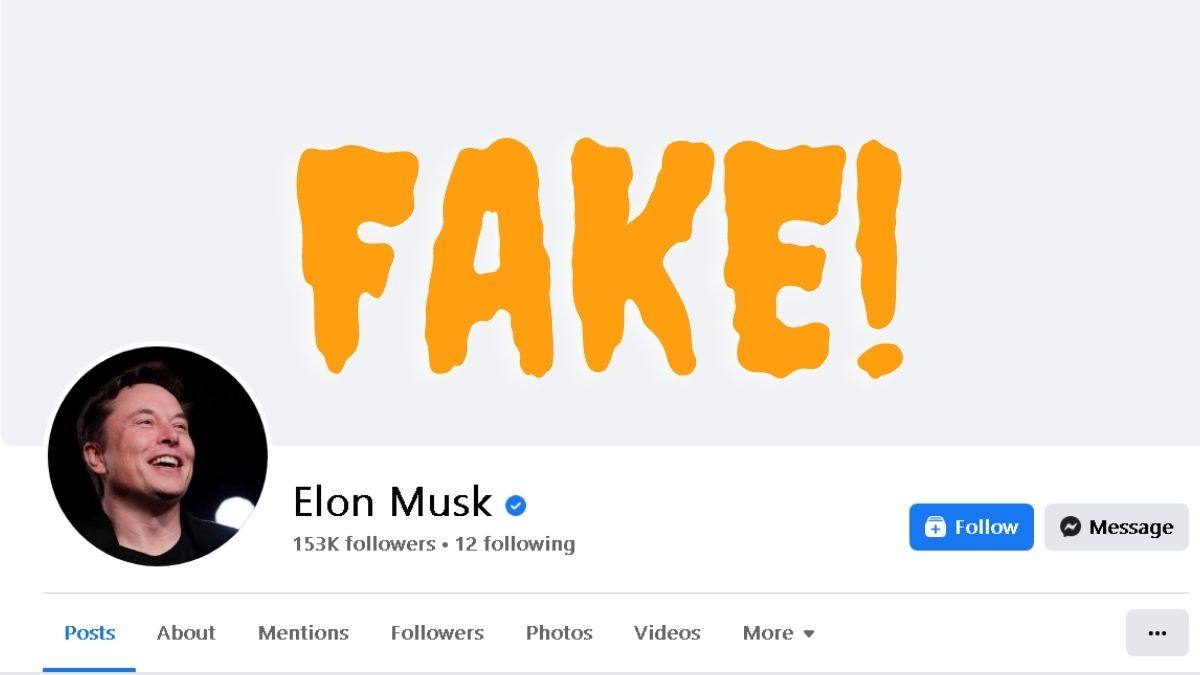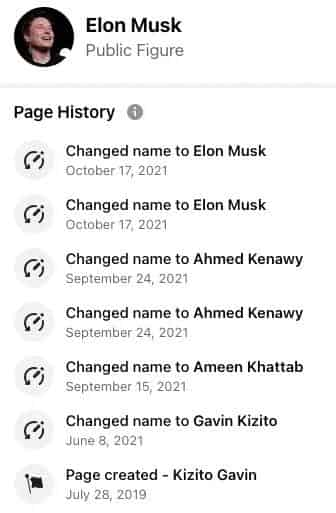Elon Musk’s Fake Facebook fan page got verified and now that account is asking users to send him payments in Bitcoin

In defiance of Facebook’s own regulations, a Facebook fan page for Elon Musk with 153,000 followers has been verified as the official Tesla Technoking page.
To be clear, the page isn’t purporting to be Musk; in its About section (emphasis ours), it explicitly indicates that it is a fan page:

Musk has a Tesla Roadster 0001 (the first one off the assembly line) from Tesla Motors, in which he was an early investor. The Roadster is a 220-mile range battery electric sportscar.
There are just ten postings on the page, the first of which was published on October 21st. One is a snapshot of Musk, another is a notice that the page’s profile picture was changed to one of Musk, and the others appear to be reposts of recent tweets.
Elon Musk’s page did not begin as a fan page. The page was founded on July 28th, 2019 to represent a “Kizito Gavin,” which is the reversed name of soccer star Gavin Kizito, according to the Page Transparency tab, which displays some history of the page, who manages it, and whether it runs adverts.

Since then, the page’s name has changed six times, all in the year 2021, the most recent change being Elon Musk twice (somehow) on October 17th. The persons who run the page are likewise based in Egypt, according to the Page Transparency section. Musk is based in Texas.
It’s also worth noticing that the page’s URL — https://www.facebook.com/ElonMuskoffici — omits the end of the term “official,” which doesn’t appear to be particularly official.
When the page was confirmed is unknown. The business has “verified that the Page or profile is the legitimate presence of the public figure or brand it represents,” according to Facebook’s verification standards. To be verified on Facebook, you must fill out a form that asks for official identification such as a driver’s license, passport, national identification card, tax filing, recent utility bill, or articles of organization, among other things.
For large social media networks, verification is a difficult task. Twitter, too, has grappled with the issue. It took a break from its verification program in 2017 before resuming it earlier this year. However, the relaunch has been rocky, with the business admitting in July that it accidentally verified a small number of bogus accounts.
A request for comment from Meta, formerly known as Facebook, was not immediately returned.


